Monographs
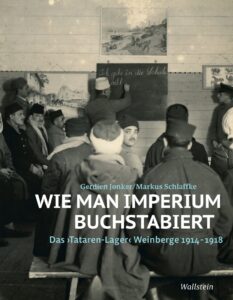
Wie man Imperium buchstabiert.
Das “Tartaren-Lager” Weinberge 1914-1918
Gerdien Jonker, Markus Schlaffke (2025)
On November 19, 1914 Germany and Turkey called for a ‘Jihad’ on Russians, the British and the French. Islamist propaganda camps emerged in Germany with the purpose of winning over Muslim prisoners of war for the WWI German-Turkish alliance. 18,000 Russian-Muslim prisoners of war, who were held at Weinberglager near Berlin, witnessed this policy directly. The camp guards tried to lure them with ideologically charged ‘islamic’ propaganda. The prisoners on the other hand developed systems to gain access to Western education outside of the official exertion of influence. They were therefore able to formulate their own role in the imperial order and prepare their fight for independence.
Authors Gerdien Jonker’s and Markus Schlaffke’s research focuses not only on archives, but also the historic site of the camp, which was unmarked for many years and is documented today only through a burial site. The inherent tension of this special story is thoroughly examined in the book. Jonker and Schlaffke depict the ways in which eugenic screening, anti-colonial freedom struggles and modern experiences of crisis collided inside the camp and how categories of identification got entangled.
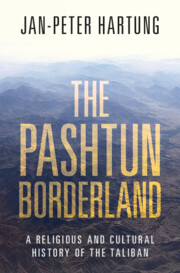
The Pashtun Borderland. A Religious and Cultural History of the Taliban
Jan-Pater Hartung (2024)
Since the Taliban returned to power in Afghanistan in 2021, the need to understand the group’s history and ideology has only increased. Jan-Peter Hartung’s timely study examines the phenomenon of the Taliban through a topographically, ethnically and geo-politically distinct space: the Pashtun Borderland of today’s Afghanistan and Pakistan. Emphasising the central role of Pashtun ethnicity, Hartung covers approximately five hundred years of Pashtun history: from the early modern Mughal empire to the first Durrani Empire in the eighteenth century and the regional developments during the colonial period in the nineteenth and early twentieth century. Drawing from a wealth of primary source materials in Pashto, Persian, Urdu and Arabic, Hartung moves the discussion of the Taliban beyond the immediacy of journalistic reportage and security-orientated studies, to a nuanced analysis of a wide range of actors and ideologies, refracting Afghanistan’s present moment through the lens of its long cultural and religious history.
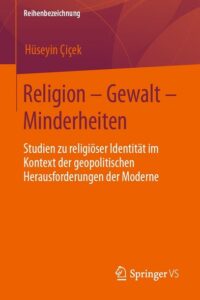
Religion – Gewalt – Minderheiten. Studien zu religiöser Identität im Kontext der geopolitischen Herausforderungen der Moderne
Hüseyin Çiçek (2023)
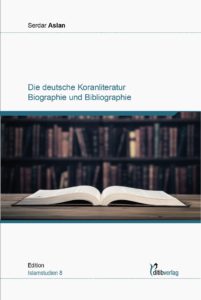
Die deutsche Koranliteratur. Biographie und Bibliographie
Serdar Aslan (2022)
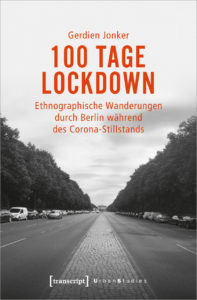
100 Tage Lockdown. Ethnographische Wanderungen durch Berlin während des Corona-Stillstands
Gerdien Jonker (2021)
March 18, 2020 – the day Angela Merkel called for a “full brake” on society to stop the spread of the coronavirus. On that day, Gerdien Jonker began her explorations through Berlin: her observations capture a city where public life has come to an almost complete standstill. For a hundred days she was on foot, noting encounters with children, joggers and S-Bahn riders, visiting Russians, Muslims and Chinese, making sketches of life in the lockdown and of Berlin’s inventiveness and contrariness. Between research and literature, the ethnography of a city in a state of emergency emerges.
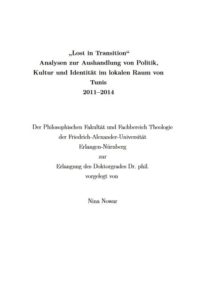
“Lost in Transition” – Analysen zur Aushandlung von Politik, Kultur und Identität im lokalen Raum von Tunis 2011 – 2014
Nina Nowar (2021)
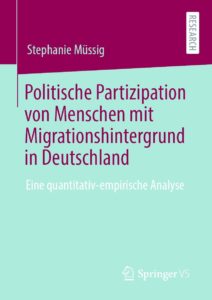
Politische Partizipation von Menschen mit Migrationshintergrund in Deutschland. Eine quantitativ-empirische Analyse
Stephanie Müssig (2020)
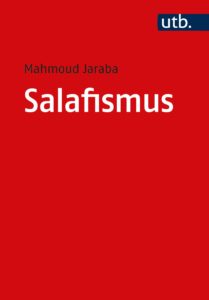
Salafismus
Mahmoud Jaraba (2020)
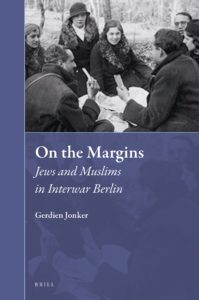
On the Margins – Jews and Muslims in Interwar Berlin
Gerdien Jonker (2020)
The new study addresses encounters between Jews and Muslims in interwar Berlin. Jonker describes the book as a spinoff to her previous work The Ahmadiyya Quest for Religious Progress. Living on the margins of German society, the two groups sometimes used that position to fuse visions and their personal lives. German politics set the switches for their meeting, while the urban setting of Western Berlin offered a unique contact zone. Although the meeting was largely accidental, Muslim Indian missions served as a crystallization point. Five case studies approach the protagonists and their network from a variety of perspectives. Stories surfaced testifying the multiple aids Muslims gave to Jews during Nazi persecution.
Using archival materials that have not been accessed before, the study opens up a novel view on Muslims and Jews in the 20th century.
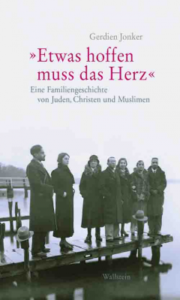
“Etwas hoffen muss das Herz”. Eine Familiengeschichte von Juden, Christen und Muslimen
Gerdien Jonker (2018)
In her latest book “The heart has to hope for something”, Gerdien Jonker traces a section of European religious history in the kaleidoscope of a family memory. It tells the story of the Oettingers, a Prussian-Jewish family from Poznan, which, like many Germans around 1900, was interested in Eastern philosophies and religious beliefs and converted to Islam between the World Wars based on their amazing estate. Jonker brings this estate to speak and thus unfolds an unusual family history over seven generations between German-Jewish assimilation, a cosmopolitan Islam, survival under National Socialism and the new beginning in post-war England.
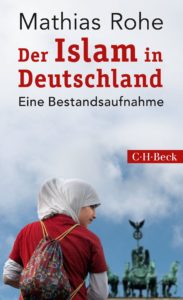
Der Islam in Deutschland. Eine Bestandsaufnahme
Mathias Rohe (2016)
Muslims have been living in Germany for decades, but still, many of them are seen as foreign, sometimes even as a threat. With his profound survey on Islam in Germany, Mathias Rohe contributes to the objectification of the topic. His book describes the history of Islam in Germany and the variety of current Muslim living realities. It shows the importance of different religious orientations and cultures and screens the manifold Muslim organizations, initiatives and positions existing in Germany today. At the centre of his research, he puts the question of how Muslim life can unfold itself in German everyday life: Which barriers exist for mosques, minarets, prayer calls or religious dress codes? How can ritual commandments – such as fastening, circumcision or religious slaughter – be integrated into German everyday life? How are the state and Muslim organizations collaborating? Are Islamic Norms compatible with German law?
Finally, Rohe asks about perspectives on peaceful co-existence in times of refugees, Muslim-religious extremism and Islamophobia. His work is an indispensable foundation for everyone who aims to take part in the discussion on Islam in Germany without illusions or anxieties.
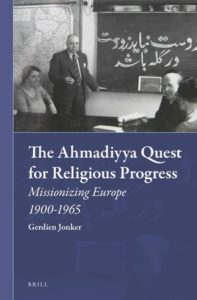
The Ahmadiyya Quest for Religious Progress. Missionizing Europe 1900 – 1965
Gerdien Jonker (2015)
What happens when the idea of religious progress propels the shaping of modernity? In The Ahmadiyya Quest for Religious Progress. Missionizing Europe 1900 – 1965 Gerdien Jonker offers an account of the mission the Ahmadiyya reform movement undertook in interwar Europe. Nowadays persecuted in the Muslim world, Ahmadis appear here as the vanguard of a modern, rational Islam that met with a considerable interest.
Ahmadiyya mission on the European continent attracted European ‘moderns’, among them Jews and Christians, theosophists and agnostics, artists and academics, liberals and Nazis. Each in their own manner, all these people strove towards modernity, and were convinced that Islam helped realizing it. Based on a wide array of sources, this book unravels the multiple layers of entanglement that arose once the missionaries and their quarry met.
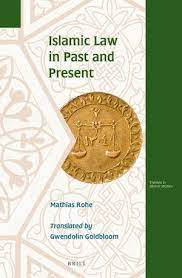
Islamic Law in Past and Present
Mathias Rohe, Übersetzung durch Gwendolyn Goldbloom (2014)
Islamic Law in Past and Present, written by the lawyer and Islamicist Mathias Rohe, is the first comprehensive study for decades on Islamic law, legal theory, reform mechanisms and the application of Islamic law in Islamic countries and the Muslim diaspora. It provides information based on an abundance of Oriental and Western sources regarding family and inheritance law, contract and economic law, penal law, constitutional, administrative and international law. The present situation and ‘law in action’ are highlighted particularly. This includes examples collected during field studies on the application of Islamic law in India, Canada and Germany.
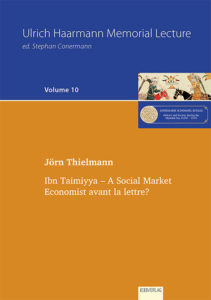
Ibn Taimiyya – A Social Market Economist avant la lettre?
Jörn Thielmann (2014)
Based on a reading of Ibn Taimiyya’s Al-Ḥisba fī l-Islām, Jörn Thielmann argues for some structural similarities between Ibn Taimiyya’s understanding of market economy and the ideas of some proponents of Germany’s social market economy, like Walter Eucken, Alfred Müller-Armack or Ludwig Erhard, which made their way into the German constitution, the Grundgesetz. Besides more conventional presentations of the moral nature of ḥisba, Ibn Taimiyya develops a short concept of human society based on reflections on human nature by Aristotle in his Politeia. Here, he shares the same assumption as a hundred years later Ibn Khaldūn. He also shows very deep insights into the functioning of markets and thus fills the so-called Schumpeterian gap that assumes that between antiquity and Thomas Aquinas nothing important has been written on economics. Thielmann demonstrates that this treaty is an original contribution to economic thought. These reflections emerge out of the particular historical circumstances of Ibn Taimiyya’s time: the Mongol threat and grain riots. Securing food supply in the big cities has been the main prerogative of the Mamluk rulers. To counter the Mongols, stability in society was needed.
This fresh look at a controversial figure in the Islamic history of thought provides proof of the complexity, richness and originality of his thinking beyond the usual stereotypes.
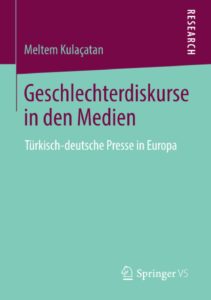
Geschlechterdiskurse in den Medien: Türkisch-deutsche Presse in Europa
Meltem Kulaçatan (2013)
Meltem Kulaçatan focuses the gender relations in the public media in focus, which is based on her studies of the press discourse of the European editions of the Turkish daily papers Hürriyet and Zaman. Based on the German-speaking majority public, the public in Turkey and the Turkish-speaking part of the public in Germany, the author analyses the spatial and content discursive entanglements based on gender discourse. These discourse entanglements can be observed in the gender relations in Turkish newspapers, which are closely intertwined with the politics in Turkey. At the same time, the press discourse on gender relations is entangled both with the integration discourse and the policy discourse in Germany, which is reflected in the media coverage of Turkish and Islamic women.
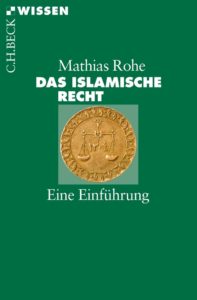
Das islamische Recht – Eine Einführung
Mathias Rohe (2013)
The Sharia has become a term of horror in the West. For many Muslims however, it is an essential part of their self-perception. With his Introduction, Mathias Rohe wants to contribute to an objective discussion on the subject. He shows the origin of the sources of the Sharia Law, its essential content and how it is currently evolving in the Islamic world, but also in Germany and Europe.
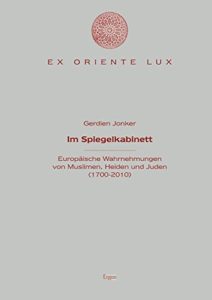
Im Spiegelkabinett. Europäische Wahrnehmungen von Muslimen, Heiden und Juden (1700-2010)
Gerdien Jonker (2013)
Not language or physics, but the other faith had made up the Christian difference ascription for a long period. From a historical perspective and on an empirical basis, the present study examines how religious alterity was constructed in German history books and how it was passed on. Textbooks represent the core set of knowledge, worldviews, and rules to be passed on to the next generation. They also contain the essential ideas about how we are different from others. It was alterity, the definition of the opponent…
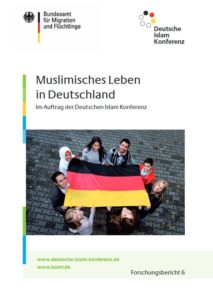
Muslimisches Leben in Deutschland. Im Auftrag der Deutschen Islamkonferenz
Stephanie Müssig, Sonja Haug und Anja Stichs (2013)
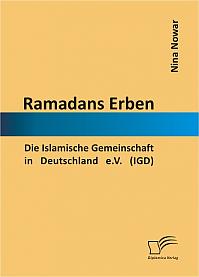
Ramadans Erben. Die Islamische Gemeinschaft in Deutschland e.V. (IGD)
Nina Nowar (2012)
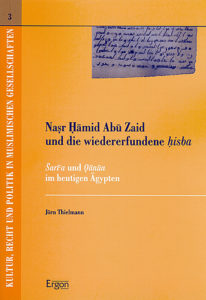
Naṣr Ḥāmid Abū Zaid und die wiedererfundene ḥisba.
Jörn Thielmann (2003)